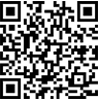Neuropathy screening (Biothesiometry)
Biothesiometer
The Biothesiometer is an instrument designed to measure the threshold of perception of vibration in human subjects. Biothesiometer is used to identify peripheral sensory neuropathy and subjects at risk of foot ulcerations in diabetic patient.
Diabetic neuropathies are a family of nerve disorders caused by diabetes. People with diabetes can, over the time, develop nerve damage throughout the body. Some people with nerve damage have no symptoms. Others may have symptoms such as pain, tingling or numbness in the hands, arms, legs and feet.
Experts recommend that people with diabetes have a comprehensive foot exam every year to check for peripheral neuropathy. It is also recommended to assess the loss of vibration perception. One of the most common reasons for amputation in India is due to neuropathic ulcers.
Diabetics with neuropathy have seven fold increased risk of foot ulcerations. Diabetics are also exposed to 15 fold higher risk of amputation of lower extremities compared to the general population. Vibration perception has been shown to be strongly associated with foot ulceration. VPT determination by using a Biothesiometer has been used to identify peripheral sensory neuropathy and subjects at risk of foot ulcerations.
Dr Vipul Patadia
Expert medical consultation By Dr Vipul Patadia MD Medicine (Consultant Physician) is available from Monday to Saturday.
Consulting Hours are as follows
Morning : 11.00 am to 1.00 pm
Evening : 6.00 pm to 9.00 pm
Price List
| Services |
Price(INR) |
| First Consultation |
500/- |
| Follow up Consultation |
200/- |
| ECG- Electrocardiogram |
300/- |
| Blood Sugar by Glucometer |
50/- |
Want an appointment with Dr Vipul Patadia ?





